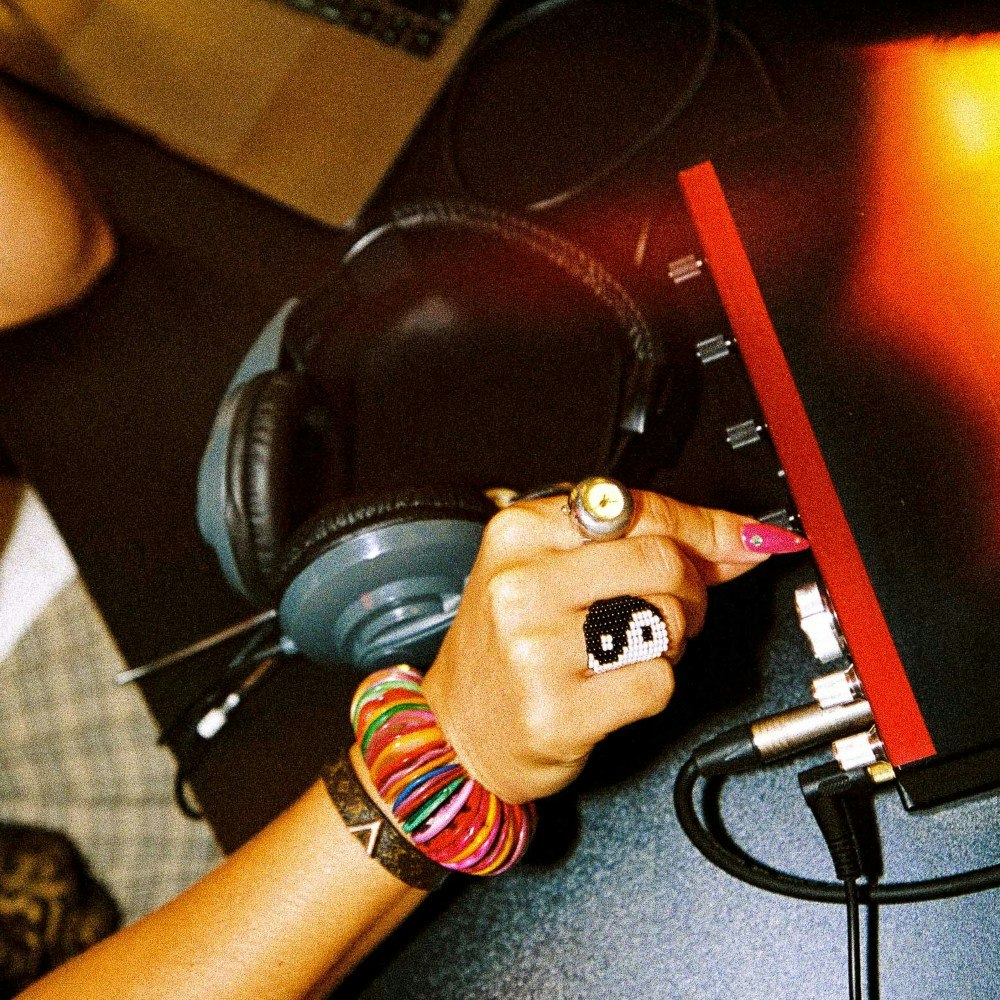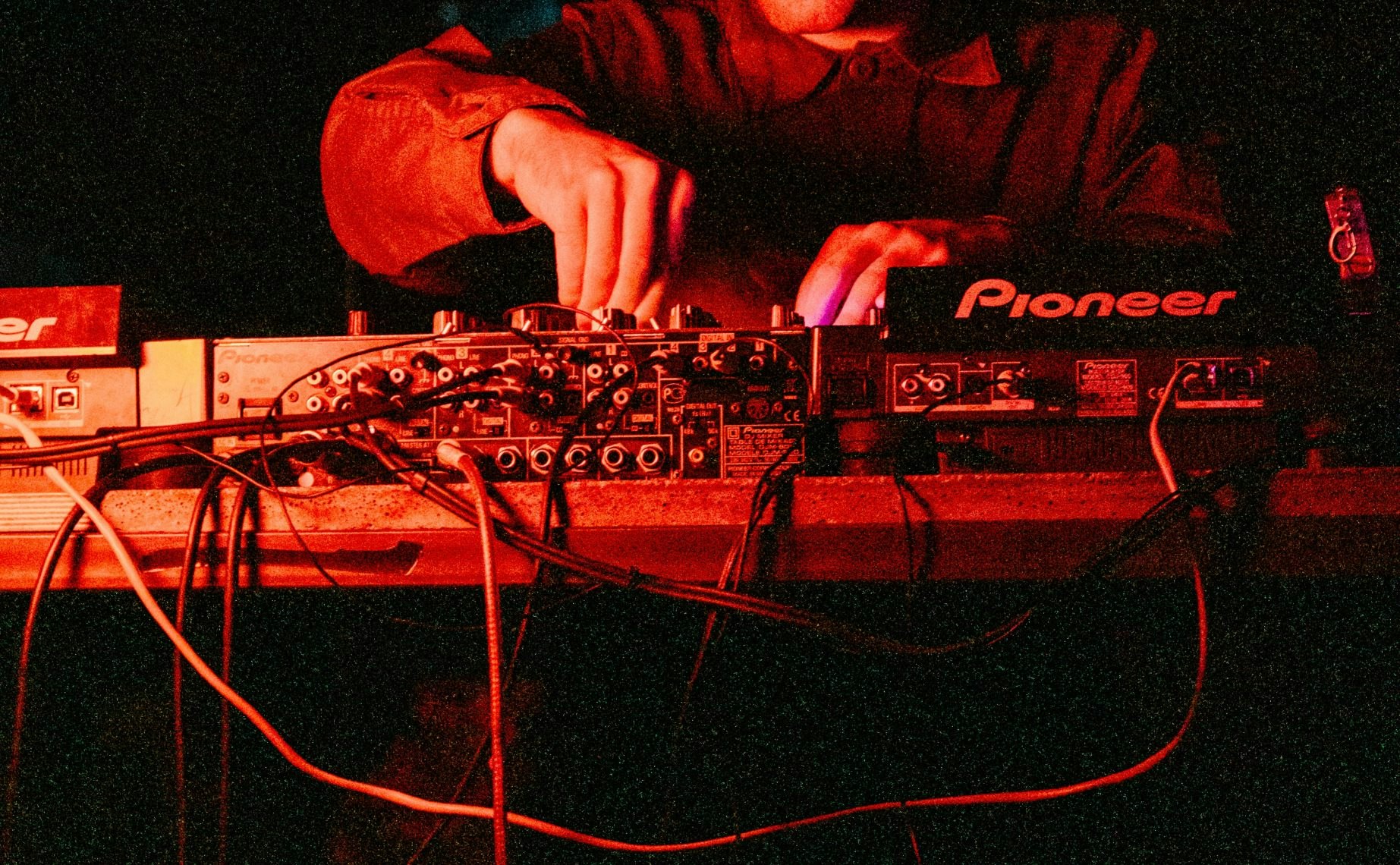
■ Discover New Music
London-based DJ/producer Dom Bishop has created a guide to mixing Techno, complete with an introduction to his favourite subgenre - 'UK Bass'.
The electronic music scene continues to thrive. There are now hundreds of genres and subgenres across the world – each with their own unique elements, separating them from the rest. As a DJ, you need to master the different skills and understand the various considerations for each genre, and some are more difficult to master than others.
Unfortunately, this isn’t a guide on how to mix every song ever created (very sorry). What it will be, is an insight into arguably one of the most progressive styles of music in the electronic scene – Techno.
I’ve been listening to Techno for the best part of a decade now, so I’m going to share with you my understanding of this particular style of music and hopefully send you away with a firm grasp on where it came from and how its developed, some artists and labels to check out, and a few Techno mixing tips.
The fine line that separates the various genres of electronic music is becoming even finer and one genre in particular, Techno, is a prime example. To discover the origins of this genre we have to look back to Detroit in the 80s, where the sound was championed by legendary pioneers such as Juan Atkins, Kevin Saunderson and Derrick May.
Techno was recognised by its repetitive four-on-the-floor beat, simple percussion and trance-like melodies. By the 90s, the genre had already spread across the pond into mainland Europe and the UK, where the likes of Acid, Dub Techno and many other genres were born from the inspiration.
The genre is still developing and unwinding, to the point where many of its subgenres take influences from across the electronic music spectrum – not just Techno.
In more recent years Techno has become more of a blanket term that covers a whole heap of different subgenres – many completely different from one another. Nowadays you’ll hear the word Techno being thrown around like it’s going out of fashion, and many people pull almost any heavy-hitting dance music under the umbrella.
This isn’t a dig, I’m guilty of it myself. As I said before, the lines are becoming finer, and there’s many genres that sit between these lines, leaving many confused on whether it’s techno or something else entirely.
You’ll discover that depending on the city or country you’re in – many scenes will have their own new wave of dance music, all with heavy Techno influences, but no specific name for it at all. And when you don’t have a name for something, you tie it in with something that people are familiar with all over the world, right? Hence why everything is being called Techno.
We need to get out of that headspace, it’s quite confusing and of course takes away from the true origins of what Techno really is.
The result of this is a new term – Bass music. I know, quite generic, but it’s a start. This forward-thinking genre (if you can call it a genre) touches on inspiration from many different genres and styles, including Techno and is a style I've been heavily inspired by when putting together my own 'Techno' DJ sets. If we were to hone in on its true Techno influences, we have to take a look at the more recent development – UK Techno.
UK Techno, although another very generic-sounding genre, is a rather niche style of music. What used to be a phrase to describe Techno made in the UK, has now become a separate style of music altogether. It takes influences from a range of styles including Jungle, Breakbeat, Ambient and a plethora of other genres.
So, what BPM is Techno? This brand of UK Techno - Bass music - can venture anywhere from 120-150bpm. Having said that, you’ll generally find it around the 130bpm mark – this makes it the perfect tempo for keeping clubbers bopping along at a nice lively tempo. It’s also the idealistic BPM for constantly shifting and changing the energy in a mix over the course of an evening.
More recently, the general vibe of this style has become quite different to its ancestors, and is now focused around breakbeat style drum patterns, complex rhythms and meandering basslines. This genre’s new-found versatility and long list of influences often leaves listeners wondering where exactly the border of this forward-thinking genre stops becoming ‘UK Techno’ and becomes a new genre altogether.
It’s very common to hear people talk about ‘UK Bass’, or ‘Leftfield Techno’ or simply ‘weird and wonky tunes’ under the same breath as UK Techno, and this echoes the idea of the unpredictability of this style of music. That for me, is what makes this music so exciting to listen to – and of course mix, which I'll get into very shortly. But first, let me show you some of my favourite artists and labels from the scene so that you can put your finger on what I’m blabbering on about.
I could sit here all day reeling off my favourite artists and labels, but I want to leave you the opportunity to go digging yourself – and I have a character limit.
The likes of Woozy, Pressure Dome and More Cowbell are just a handful of labels pushing this new-styled bass music. You’ll find that each of the label's releases are unique in their own way, but all provide the same high-energy broken beat sound. When I say broken beat, I’m referring to the drum pattern. As with traditional Techno, the kick hits each beat and is very easy to follow – with this style of music, it's very unpredictable.
This scene is moving at a lightning pace, and more and more people are seeking out the sound. The UK seems to be the epicentre of the movement, with artists from London, Bristol, Manchester and various other areas continuing to pop up with further development of this ever changing genre.
If I had to hand-pick a few of my favourites, go and check out Two Shell, re:ni and Anz – this bunch are truly talented.
Right, I’m sure you’ve heard enough about the history of Techno and Bass. “How do you go about mixing these?”, I hear you say.
As I’ve said, Bass music is a lot more unpredictable. It doesn't follow the same rules of what makes a good Techno set - Techno is a bit more structured and easier to follow. Nonetheless, here are a few Bass and Techno mixing techniques that should help you on your way to mastering both genres:
Avoid clashing melodies – Occasionally in Bass and Techno DJing, you’ll come across tracks that have a lead melody or synth lines. If you’re playing a track with a melody, try and avoid mixing in a track that also has a melody. If they’re in a different key, you may find it sounds out of tune.
Aside from that, two melodies fighting for the same space in a mix can sound way too busy – even if they are in the same key. It might be best to find an area of the track where the melody stops in one of them, if you’re looking to bring in another.
Keep energy levels consistent – Most tracks will have a breakdown. Be cautious of this when bringing in a track, you don’t want every transition to play the entire breakdown. If you’re in a club and every couple of minutes you have to stop dancing to wait for the bass/drums to come back in, it can really kill the vibe.
Maybe try looping a high-energy section of a track during the breakdown of the track you’re mixing in to ensure there aren’t dips in energy. That’s not to say you should never do it! Every now and then it’s great to dip the energy for 30 seconds or so to give your listeners a breather. Just do so in moderation.
Don’t overdo it with the effects – One mistake a lot of DJs make when mixing, is showing off their skills with the effects. You have to remember, the main reason a DJ is there is to play music – not necessarily be noticed for it.
Think of your mix as one long track. The idea is to get your listener from the beginning to the end without them noticing any transitions. Of course, as you become more advanced, you’ll discover interesting transitions and ways to get the crowd oohing in awe of your performance. But when you’re starting out, keep it simple. Master how to beatmatch, tune selection and take into consideration the key points I made above, and you’ll find that you won’t need to use too many effects to polish your mix.

Always remember that the basics of mixing Techno and Bass are underpinned by the same skills necessary for mixing almost every other genre. No matter what you're playing in your DJ mix, it's essential that you know how to DJ technically - otherwise your mix isn't going to sound good no matter how good your track selection is.
To practice DJing, you can book one of Pirate’s DJ studios and pay per hour across the UK, US and Germany. Each of Pirate’s studios come with industry standard Pioneer DJ equipment.
